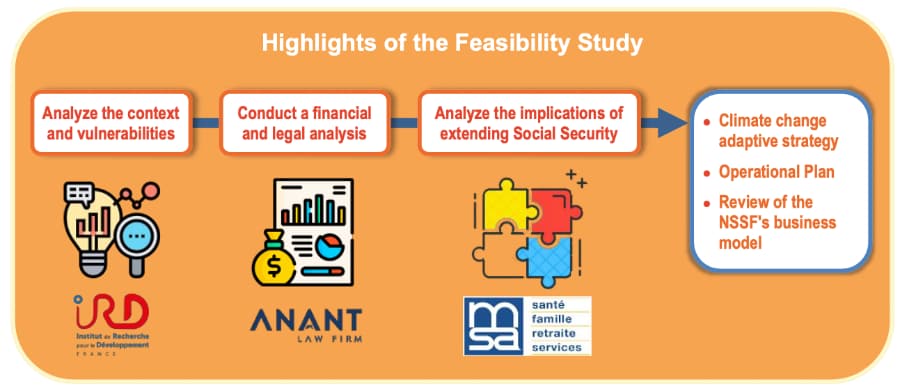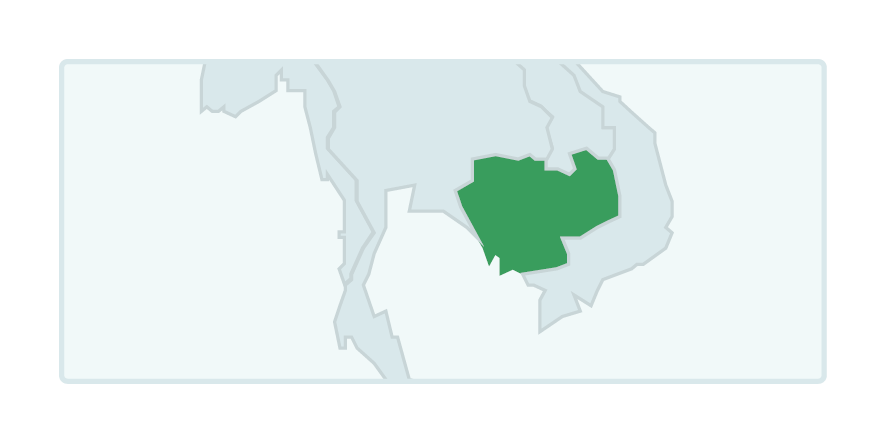This project, co-implemented by the National Social Security Fund (NSSF) and GRET, aims to support the strategic reflection and operational action of the NSSF to extend Social Health insurance, to rural populations in Cambodia with a particular emphasis on the agricultural sector. It is motivated by the recognition of the vulnerability of rural populations to various risks, including poverty, disease, and climate change.
The NSSF, together with GRET, funded by Agence Française de Développement (AFD), will use this opportunity to review the context, design a climate-proof social security scheme for rural workers and develop a strategy to implement it. This ambition is rooted in the Universal HealthCare (UHC) Roadmap ambition set by the General Secretariat – National Social Protection Council. It aims to achieve UHC for at least 85% of the population by 2030.
With a renewed political impetus, Social Protection is very transversal in the top 5 priorities set by the new government as a necessity to invest in Human Capital. It is also being explicitly mentioned as “Fourth priority to ensure social security and stability in people’s livelihood now and in the future by developing and strengthening a social protection system that includes effective and sustainable social assistance and social security systems to protect everyone, especially those from poor households, vulnerable groups, and at-risk households, from crises and emergencies without leaving anyone unattended.”
Aligning with national policy priority, the study will look into the context of vulnerable groups at risk while taking into account the following contextual elements:
GRET has been active in health and social protection in Cambodia since the late 1990s and has developed a unique partnership relationship providing technical assistance to the NSSF, formalized by an MoU. GRET is currently supporting the extension of social security coverage to vulnerable populations, particularly those in the informal sector and the self employed, through the newly established voluntary Social Health Insurance Scheme.
Recognizing the need for a multi-disciplinary approach as well as the importance of connecting Climate Change scenarios with Social Protection; GRET, in dialogue with the NSSF, will engage with a number of major resource partners to ensure expertise and innovation will enable the delivery of the Proposal’s ambition.
Together with the NSSF, GRET will engage with a set of actors in order to foster an enabling environment that can promote a narrative of extension to rural populations in Cambodia.

This study aims to strengthen the capacity of the NSSF for sustainable extension of the coverage of climate-proof social security schemes, in particular for the agricultural sector, with a view to climate change adaptation. It will involve various stakeholders, including the NSSF, government agencies, development partners, and NGOs, to create a sustainable and resilient social protection system.
